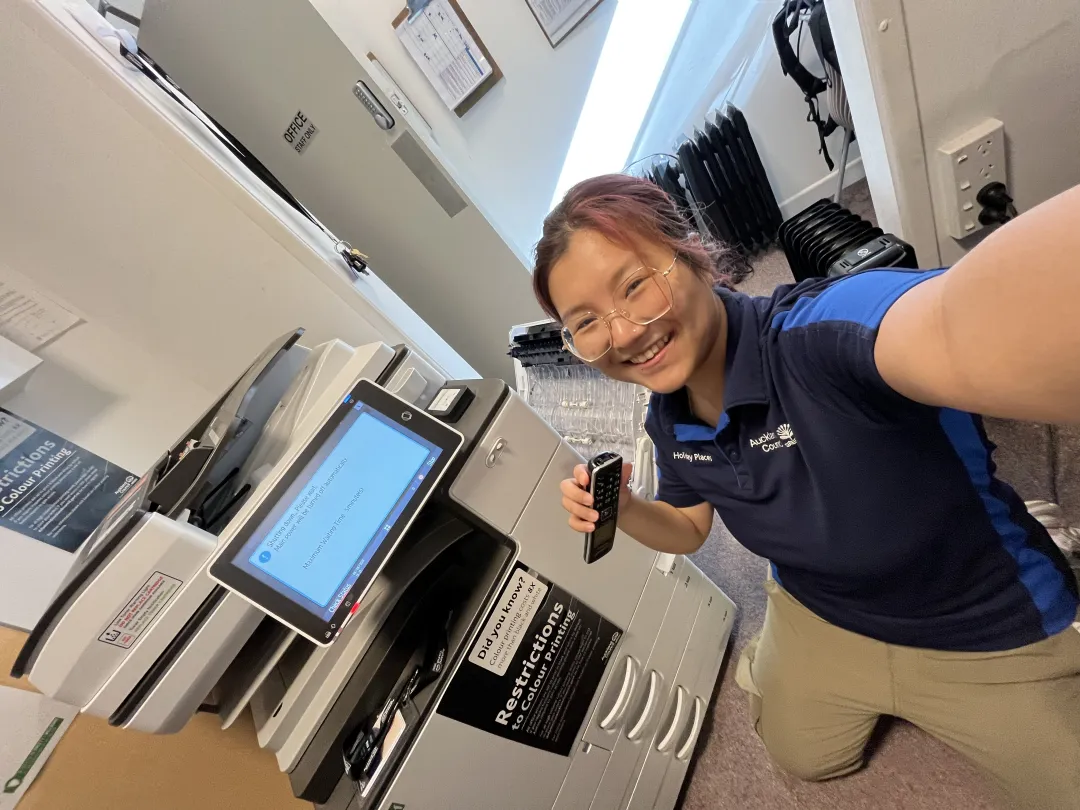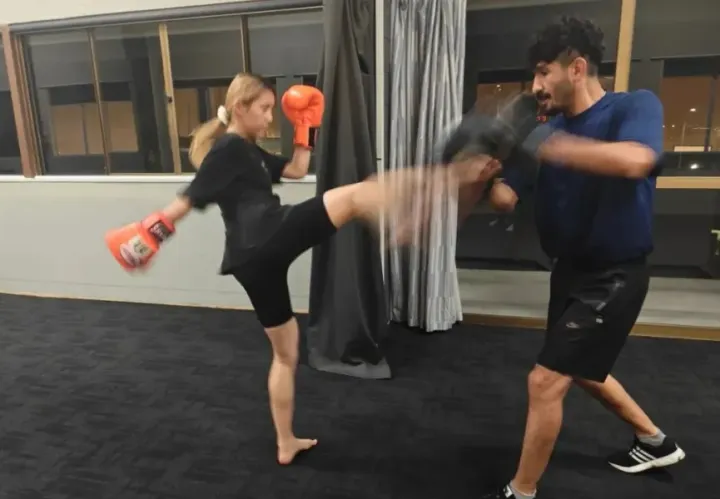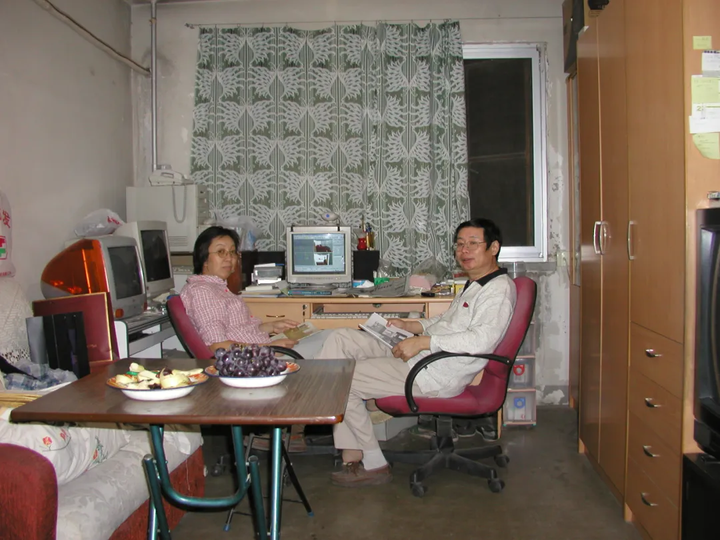"Who says it's hard to find a job in New Zealand? I found a government job on a working holiday visa"

Staff Writer: Yima
Image Source: Supplied
On social media, you often see posts about how "it's hard to find a job in New Zealand," but some people manage to secure jobs in government departments before even entering the country.
Today, we interviewed Rita, who is exceptionally skilled at job hunting, to hear how she defied the odds and earned her first fortune.

I Chose a Dead-Ends Major
Rita is from Haikou, Hainan, and comes from a family with an "immigrant gene." Her father is from Hubei, where he had a job at a state-owned enterprise but was "restless and wanted to explore." He moved to Hainan by himself. Her mother, originally from a rural area in Chongqing, had not been educated but had the courage to move to Hainan when she was young.
Two young people from different places met in Haikou, started a family, and had children. They always encouraged their kids to pursue freedom, which made Rita more "wild" than her peers. Because her brother worked in Shanghai, Rita had always longed for that city.

During high school, she seized a rare opportunity when Fudan University recruited science students in Hainan for its foreign language programs. She applied and was accepted into the Spanish language program at Fudan University under the early admissions plan.
In college, many people told her that "foreign language majors are dead-ends with poor job prospects." Many classmates changed their majors, but Rita decided to give it a chance and see if she could make it work.
To her surprise, not only did she not dislike the major, but she also "unexpectedly discovered her talent for learning languages." In her junior year, she had the opportunity to study abroad, and she went to Granada, Spain.
What others called a "dead-end major" became wings that helped Rita see the world and soar higher.

Went Abroad During the Pandemic
In 2021, Rita went to Spain during the pandemic. Her parents were worried but still chose to support her decision.
"I had the happiest time of my life there," she recalls, her voice full of joy as she talks about her life in Europe.
Rita initially thought she would feel lonely in a new country, but after arriving in Granada, she found it "easier to make friends than back home." She met many like-minded people who shared similar views on family, society, and marriage, and her days were full and free.

While studying in Spain, she also worked part-time.
She applied for a position as an English teaching assistant at a local high school, which helped improve her spoken English and expand her social circle.
She also volunteered at a home for the elderly and disabled, becoming part of the local community.

Like many Chinese students studying in Europe, she took advantage of her location to travel around the continent. To save money, she applied for work-exchange programs at youth hostels.
These experiences later helped her land a job in New Zealand.

Even "Chinese Kids" Need a Gap Year
Rita's exchange program in Spain lasted for a year. When the year ended, she returned to school, and the pressure came back. Many of her classmates were busy job hunting or preparing for graduate school exams.
Rita was also offered a spot in a graduate program but didn’t get accepted into the specific project she had applied for.

Should she suit up and attend one job fair after another, or should she take exams for master? After careful thought, Rita realized that neither option was what she really wanted.
While traveling in Europe, she often encountered gap-year travelers—people who took time off at certain stages in their academic or professional careers, ranging from a few months to several years. During this time, they traveled, volunteered, or learned new skills, experiencing different ways of life.
"Some people say that Asian kids aren’t entitled to gap years. Even if they take one, it's only for preparing for graduate exams or government jobs. Otherwise, it becomes a permanent stain on their resume."
Rita didn’t believe this and wanted to give herself a gap year to figure out her next steps. So, she applied for a working holiday visa in New Zealand, treating this adventure as a graduation gift to herself.

Who Lied to Me About It Being Hard to Find a Job in New Zealand?
Unlike her time studying in Spain, Rita felt more anxious about job hunting before her working holiday in New Zealand. Before leaving, she saw many online posts saying it was "hard to find a job in New Zealand" or that "working holiday visa holders face discrimination."
But how could she know if it was hard without trying for herself? Life is like a pony crossing a river—you have to try it to know the answer.

In Spain, she sending emails to dozens of hostels in multiple European countries to find a work-exchange opportunity. Eventually, she secured a position in a small town in southern Portugal.
Before coming to New Zealand, she used the same approach.
She wrote a well-detailed cover letter, including her personal information, work experience, and skills. She contacted many hotels and hostels in New Zealand, sending them emails one by one.

A hostel manager on Waiheke Island, originally from South America, reached out to her. Rita did the interview in Spanish and was successfully hired.
This hostel was part of a government-run project, so technically, she became a "public servant" before even arriving in New Zealand.

Rita’s job at the hostel wasn’t difficult—she cleaned rooms in the morning, worked the front desk in the afternoon, and relaxed with guests in the evening. The pay wasn’t bad either, as it was a government job.
Rita quickly adapted to the work and made friends. As a foreign immigrant, she found herself in a common dilemma: Should she apply for a long-term work visa and stay in New Zealand?

Her manager praised her work ethic and told her she could apply for a higher position if she decided to stay, but she would need to commit to working there for at least five years.
Although the scenery on Waiheke Island was beautiful, with many luxury hotels and wineries and tourists from all over the world, life there didn’t seem as exciting to her.

Rita found herself doing the same tasks every day and having similar conversations with tourists. Life started to feel like the movie Groundhog Day, repetitive and lacking freshness.
After coming all the way from Hainan, she didn’t want her life to be stuck on Waiheke Island.

Am I Here for a Working Holiday or to Be a Servant?!
Rita remembered why she came to New Zealand and decided to quit her job at the hostel. She traveled around the North Island and eventually moved to Wellington.

"Almost everyone I met at the hostel told me Wellington was great," so she felt an inexplicable affection for the city. But the job she found in Wellington didn’t meet her expectations.
She worked as a restaurant server, but the chef had a terrible temper, often swearing during communication. He was especially harsh towards Rita and another Chinese girl, while treating young white female servers kindly.
Sensing racial discrimination, Rita brought the issue to the manager. While the chef toned down his behavior somewhat, he continued to ignore her in the workplace.
Even though the job was frustrating, Rita had planned to stay in Wellington for two months. She endured the situation, finished her time there, and then headed to the South Island.
Using the same wide-net approach, she found a job at a remote holiday park. It took over an hour of hiking to reach the location. Life there was simple, and she saved her first pot of gold.

Unlike the glamorous stories often shared by other working holiday travelers online, Rita was frank about her messy moments in New Zealand:
- “My car window was smashed by a drunk neighbor.”
- “The car got stuck in the mud, and I had to ask around for help.”
- “I accidentally wandered into a seal colony and got surrounded.”
- “I was woken up by noisy neighbors during a 'couple’s activity' in the next hostel bed.”
- “I was called in to unclog a drain in the middle of a shift.”

Despite these challenges, the experience gave her a lot. She gained new experiences, made friends, and saved money for her next step—studying abroad.
Goodbye New Zealand, I’m Going to Save Humanity
Rita had always loved the cultural atmosphere of Europe. During her working holiday in New Zealand, she began applying to universities in Europe. She had always been interested in public policy, so she applied to several Nordic universities that offered relevant programs.
She describes her life as "swimming against the current." Many people said, "Nordic universities value academic background and won’t accept cross-major applicants," but she received six offers, three of which were fully funded.
For her studies, she didn’t choose a practical field like computer science. Instead, she opted to pursue a humanities degree, focusing on "studying societal problems and working to save humanity."
She’s now set on going to Helsinki, Finland, to start her studies in August.
"I will continue to follow paths that are not widely accepted, paths that are even rebellious, restarting my life over and over again," she wrote on her social media.




